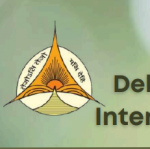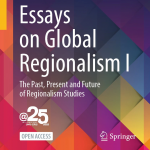Review: Research Seminar Series - Clément Perarnaud

On 25 June 2020, Clément Perarnaud, Visiting Researcher at the Institute for European Studies at the Vrije Universiteit Brussel, presented his upcoming paper titled “Coordination Processes as Informal Power Resources: Comparative Study of Member States’ National Coordination Apparatus with Their Bargaining Satisfaction in the Council of the EU”.
The virtual research seminar was chaired by Prof. Dr. Jamal Shahin, and Mr. Perarnaud’s presentation was followed by commentary from Prof. Dr. Samuel Standaert, Professor in Economics at Gent University and Professorial Fellow at the United Nations University – CRIS.
Mr. Perarnaud’s article explores the power dynamics of the policymaking process of the Council of the European Union. It aims at contributing to the literature on the determinants of member states’ bargaining success by examining its still-understudied relationship with informal power resources. In other words, the article studies the role of the coordination apparatus mobilized by member states at national and European level as part of Council negotiations.
The study employs a two-level analytical model, using the bargaining success of member states as the dependant variable. It builds on data from the upcoming new dataset on decision-making in the European Union before and after the 2004 and 2007 enlargements (DEUII) and on a second novel dataset, developed as part of Mr. Perarnaud’s research project, documenting variations of member states’ national coordination systems.
Mr. Perarnaud presented the twofold hypothesis that a member state’s success hinges on its internal coordination efficiency – that is, which domestic arrangements a member state’s mobilises to formulate its preferences and how they are channelled at European level, and its external coordination strength – that is, how a member states uses its power and influence residing in other EU institutions, especially the European Parliament. The subsequent empirical analysis, while revealing different outcomes regarding the efficacy of different coordination variables, displays how informal power influences the efficiency and structure of national coordination systems.
Following Mr. Perarnaud’s presentation, Prof. Dr. Standaert lead the discussion with questions regarding the methodology, terminology, and analytical framework employed in the study. Prof. Standaert provided useful observations which shed light on why Mr. Perarnaud has chosen the two-way analytical model, how he has selected relevant data, and the definition of bargaining power (as opposed to the power of persuasion). Prof. Shahin also intervened, addressing broader issues such as the relevance of party affiliation in negotiations between nations and the probability of member states renouncing some of their harsher stances to be part of a strong coalition. Mr. Perarnaud responded by referencing his other upcoming papers, in which he is able to go beyond the scope of the one being discussed.
As Mr. Perarnaud moves forward with his research project, his focus on informal power resources may become a useful new tool for developing negotiating strategies.




